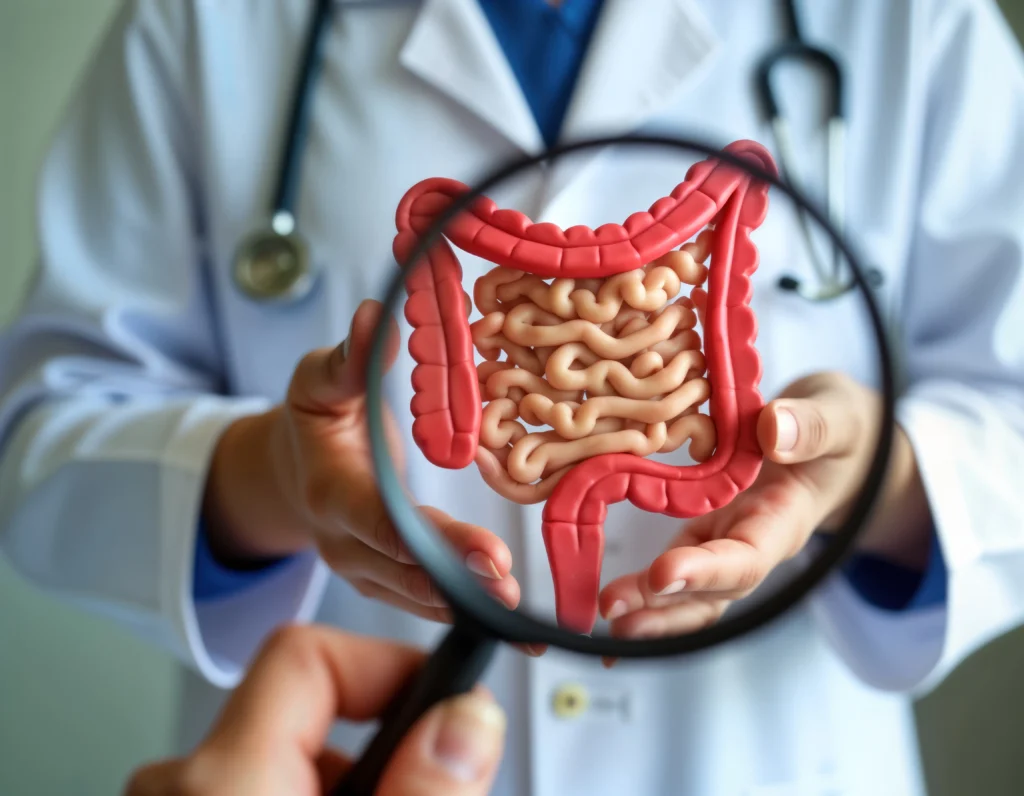
Diverticular disease starts when small pouches form in the wall of the colon. These pouches are called diverticula. When they first appear, the condition is known as diverticulosis.
If the pouches get swollen or infected, it becomes diverticulitis. This can cause stomach pain, fever, and changes in bowel habits.
Several things can lead to diverticular disease, such as your diet, lifestyle, and age.
Diverticular disease is very common, especially in older people. It affects about 1 in 3 people aged 50 and older. For adults over 80, it affects more than half.
Mostly, people with diverticulosis don’t have any symptoms. However, around 10% – 25% of the people with diverticulosis may develop diverticulitis.
Yes, you can often prevent or manage diverticulosis. As a start, eat foods that are high in fiber, like fruits, vegetables, and whole grains. Drink plenty of water to help your digestion. Regular exercise keeps your bowels working well. In addition, try not to strain during bowel movements. As a result, this reduces pressure on your colon.
Yes, diverticulitis can be serious, especially if it causes problems like abscesses (pockets of pus), a tear in the colon, or an infection in the belly (peritonitis). That’s why it’s important to get treatment early. Quick care, as a result, helps prevent these complications.
Doctors often recommend a high-fiber diet if you have diverticulosis. Some people used to avoid nuts, seeds, and popcorn, thinking these might irritate the pouches. However, recent research shows they are safe for most people. Before cutting out any foods, talk to your doctor. They can guide you based on your health.
Doctors begin by asking about your symptoms and checking your stomach. Then, they may order a CT scan or other imaging test. These tests help them see if your colon has swollen or infected pouches.
No, diverticular disease does not cause colon cancer. This is because there is no direct link between the two. Still, it’s important to get regular colon screenings. As a result, these help you stay on top of your overall colon health.
Diverticulosis usually doesn’t cause any symptoms. However, when you have many pouches, they can affect how your bowels work. You may feel stomach pain, notice changes in your bowel habits, or feel bloated or gassy. Some people feel full or lose their appetite.
To lower your risk, focus on healthy habits. Eat more fiber, drink lots of water, and stay active. Fiber-rich foods like fruits, veggies, and whole grains help you have regular bowel movements. As a result, this lowers pressure in your colon. Also, try not to push too hard when using the bathroom. These simple steps can protect your digestive health and help you avoid future problems.